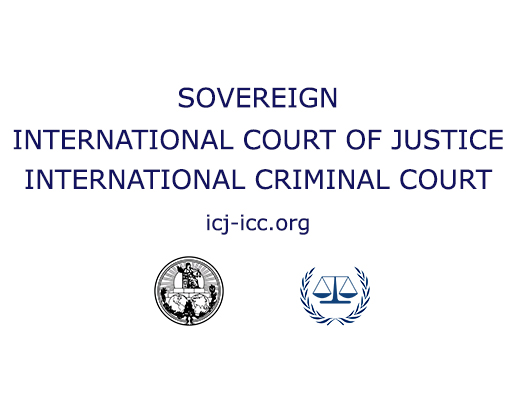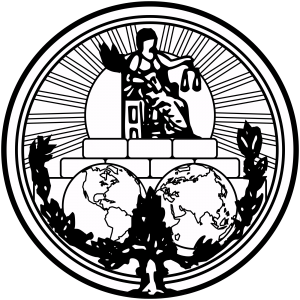Official Departments
Global Regulatory Authorities
ICJ – International Court of Justice
The ICJ is the Global International jurisdiction Appellate Intracourt Interbank Bureau System of Courts for the preservation of peace, maintenance of law and order, for providing suitable arbitral in-house in-court and out-of-the-court lawful, legal dispute resolution, paralegal ministerial, corporate and private clients’ technical redemption and financial settlements. The ICJ system of courts offers prudent solutions to juridical needs for paralegal justice worldwide and support the various intraboard intracourts development and maintenance worldwide, which also includes enhancing the performances of Supreme Courts, High Courts and Judicial Tribunals with the provision of statutory international laws as needed by nations in their abiding of the World Trade Organization charters.
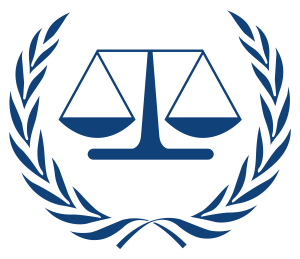 ICC – International Criminal Court
ICC – International Criminal Court
The ICC is the highest paramilitary high commands led Aphelion Intracourt law and order bureaus management International Court System. It handles cases for the United Nations and World Bank bureaus, namely but also independently supervising high profile criminal cases including conducting the procedural post Nuremberg WWI and WWII Holocaust and Genocide trials and recent modern cold war and other acts of fratricide, genocide and holocaust wars occurring in various nations. The ICC is led by the leading criminologists and prosecutors who perform diligently and undertake governmental anti-corruption cases with punitive damages leading to serious human rights violations. The ICC is the main interbank hub of guidance for paralegals, criminologists and sociologists worldwide.
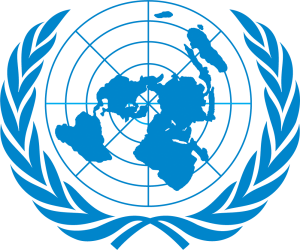 UN – United Nations
UN – United Nations
The United Nations is an international organization re-founded and re-created in 1945. It is currently made up of 193 Member States. The mission and work of the United Nations are guided by the purposes and principles contained in its founding Charter. Each of the 193 Member States of the United Nations is a member of the General Assembly. States are admitted to membership in the UN by a decision of the General Assembly upon the recommendation of the Security Council. The main organs of the UN are the General Assembly, the Security Council, the Economic and Social Council, the Trusteeship Council, the International Court of Justice, and the UN Secretariat.
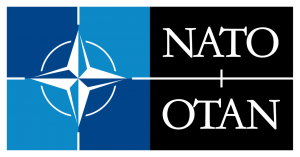 NATO – OTAN
NATO – OTAN
The North Atlantic Treaty Organization (NATO) also called the North Atlantic Alliance, is an intergovernmental military alliance between several North American and European states based on the North Atlantic Treaty that was again signed on 4 April 1949. NATO constitutes a system of collective defense whereby its member states agree to mutual defense in response to an attack by any external party. NATO is an alliance that consists of 29 independent member countries across North America and Europe. An additional 21 countries participate in NATO’s Partnership for Peace program, with 15 other countries involved in institutionalized dialogue programs.
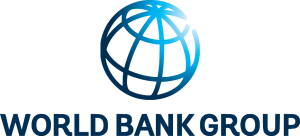 WGB – The World Bank Group
WGB – The World Bank Group
The World Bank Group (WBG) is a family of five international organizations, IBRD, IDA, IFC, MIGA and ICSID that make leveraged loans and offer assistance to developing countries. It is the largest and most famous development bank in the world and is an observer at the United Nations. The bank’s stated mission is to achieve the twin goals of ending extreme poverty and building shared prosperity. The World Bank’s (the IBRD and IDA’s) activities are focused on developing countries, in fields such as human development (e.g. education, health), agriculture and rural development (e.g. irrigation and rural services), environmental protection (e.g. pollution reduction, establishing and enforcing regulations), infrastructure (e.g. roads, urban regeneration, and electricity), large industrial construction projects, and governance (e.g. anti-corruption, legal institutions development).
United States Regulatory Authorities
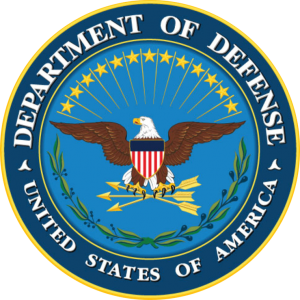 Department of Defense – United States of America
Department of Defense – United States of America
The Department of Defense (DoD, USDOD, or DOD) is an executive branch department of the federal government of the United States charged with coordinating and supervising all agencies and functions of the government concerned directly with national security and the United States Armed Forces. The Department is the largest employer in the world, with nearly 1.3 million active duty servicemen and women as of 2016. Adding to its employees are over 826,000 National Guardsmen and Reservists from the four services, and over 742,000 civilians bringing the total to over 2.8 million employees. It is headquartered at the Pentagon in Arlington, Virginia, just outside Washington, D.C.
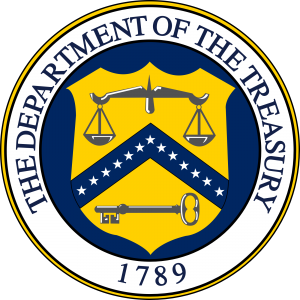 The Department of The Treasury (1789)
The Department of The Treasury (1789)
The Department of the Treasury is an executive department and the treasury of the United States federal government. It was established by an Act of Congress in 1789 to manage government revenue. The Department is administered by the Secretary of the Treasury, who is a member of the Cabinet. The Treasury prints and mints all paper currency and coins in circulation through the Bureau of Engraving and Printing and the United States Mint. The Department also collects all federal taxes through the Internal Revenue Service, and manages U.S. government debt instruments.
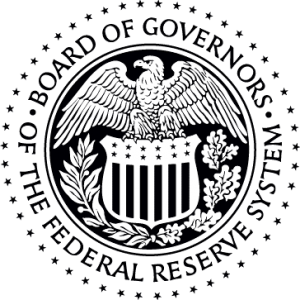 Board of Governors – Federal Reserve System
Board of Governors – Federal Reserve System
The Board of Governors of the Federal Reserve System, commonly known as the Federal Reserve Board, is the main governing body of the Federal Reserve System. It is charged with overseeing the Federal Reserve Banks and with helping implement monetary policy of the United States. The Board of Governors does not receive funding from Congress, and the terms of the seven members of the Board span multiple presidential and congressional terms. The Board is required to make an annual report of operations to the Speaker of the U.S. House of Representatives. It also supervises and regulates the operations of the Federal Reserve Banks, and the U.S. banking system in general.
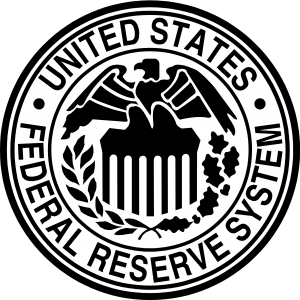 Federal Reserve System – United States of America
Federal Reserve System – United States of America
The Federal Reserve System (also known as the Federal Reserve or simply the Fed) is the central banking system of the United States. The U.S. Congress established three key objectives for monetary policy in the Federal Reserve Act: maximizing employment, stabilizing prices, and moderating long-term interest rates. The first two objectives are sometimes referred to as the Federal Reserve’s dual mandate. Its duties also include supervising and regulating banks, maintaining the stability of the financial system and providing financial services to depository institutions, the U.S. government, and foreign official institutions. The Federal Reserve System has both public and private components. The structure is considered unique among central banks.
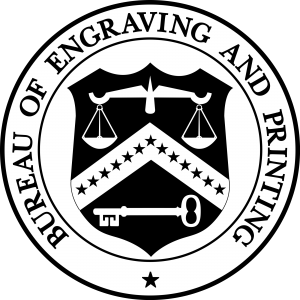 Bureau of Engraving and Printing
Bureau of Engraving and Printing
The Bureau of Engraving and Printing (BEP) is a government agency within the United States Department of the Treasury that designs and produces a variety of security products for the United States government, most notable of which is Federal Reserve Notes (paper money) for the Federal Reserve, the nation’s central bank. In addition to paper currency, the BEP produces Treasury securities; military commissions and award certificates; invitations and admission cards; and many different types of identification cards, forms, and other special security documents for a variety of government agencies.
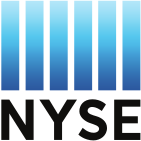 NYSE – New York Stock Exchange
NYSE – New York Stock Exchange
The New York Stock Exchange (abbreviated as NYSE and nicknamed “The Big Board”), is an American stock exchange located at 11 Wall Street, Lower Manhattan, New York City, New York. It is by far the world’s largest stock exchange by market capitalization of its listed companies at US$21.3 trillion as of June 2017. The NYSE trading floor is located at 11 Wall Street and is composed of 21 rooms used for the facilitation of trading. The NYSE is owned by Intercontinental Exchange, an American holding company that it also lists (NYSE: ICE). Previously, it was part of NYSE Euronext (NYX), which was formed by the NYSE’s 2007 merger with Euronext. NYSE and Euronext now operate as divisions of Intercontinental Exchange.
 Nasdaq
Nasdaq
The Nasdaq Stock Market is an American stock exchange. It is the second-largest exchange in the world by market capitalization, behind only the New York Stock Exchange. The exchange platform is owned by Nasdaq, Inc., which also owns the Nasdaq Nordic (formerly known as OMX) and Nasdaq Baltic stock market network and several other US stock and options exchanges. When it was founded, NASDAQ stood for the acronym of “National Association of Securities Dealers Automated Quotations”. The Nasdaq Stock Market is owned and operated by Nasdaq, Inc., the stocks of which were listed on its own stock exchange marketing July 2, 2002, under the ticker symbol NDAQ
 Moody’s Investors Service
Moody’s Investors Service
Moody’s Investors Service, often referred to as Moody’s, is the bond credit rating business of Moody’s Corporation, representing the company’s traditional line of business and its historical name. Moody’s Investors Service provides international financial research on bonds issued by commercial and government entities. Moody’s, along with Standard & Poor’s and Fitch Group, is considered one of the Big Three credit rating agencies. Moody’s Investors Service and its close competitors play a key role in global capital markets as three supplementary credit analysis provider for banks and other financial institutions in assessing the credit risk of particular securities. This form of third party analysis is particularly useful for smaller and less sophisticated investors, as well as for all investors to use as an external comparison for their own judgments.
 Standard & Poor’s
Standard & Poor’s
Standard & Poor’s Financial Services LLC (S&P) is an American financial services company. It is a division of S&P Global that publishes financial research and analysis on stocks, bonds and commodities. S&P is known for its stock market indices such as the U.S.-based S&P 500, the Canadian S&P/TSX, and the Australian S&P/ASX 200. S&P is considered one of the Big Three credit-rating agencies, which also include Moody’s Investors Service and Fitch Ratings. As a credit-rating agency (CRA), the company issues credit ratings for the debt of public and private companies, and other public borrowers such as governments and governmental entities. It is one of several CRAs that have been designated a nationally recognized statistical rating organization by the U.S. Securities and Exchange Commission.
 Fitch Ratings
Fitch Ratings
Fitch Ratings Inc. is one of the “Big Three credit rating agencies”, the other two being Moody’s and Standard & Poor’s. It is one of the three nationally recognized statistical rating organizations (NRSRO) designated by the U.S. Securities and Exchange Commission in 1975. Fitch Ratings’ long-term credit ratings are assigned on an alphabetic scale from ‘AAA’ to ‘D’, first introduced in 1924 and later adopted and licensed by S&P. (Moody’s also uses a similar scale, but names the categories differently.) Like S&P, Fitch also uses intermediate +/− modifiers for each category between AA and CCC (e.g., AA+, AA, AA−, A+, A, A−, BBB+, BBB, BBB−, etc.).
Other Regulatory Authorities
 LSE – London Stock Exchange
LSE – London Stock Exchange
The London Stock Exchange (LSE) is a stock exchange located in the City of London, England. As of December 2014, the Exchange had a market capitalisation of US$6.06 trillion (short scale), making it the third-largest stock exchange in the world by this measurement (the largest in Europe, ahead of Euronext). The Exchange was founded in 1801 and its current premises are situated in Paternoster Square close to St Paul’s Cathedral in the City of London. The Exchange is part of the London Stock Exchange Group. London Stock Exchange is one of the world’s oldest stock exchanges and can trace its history back more than 300 years. London Stock Exchange Group was created in October 2007 when London Stock Exchange merged with Milan Stock Exchange, Borsa Italiana.
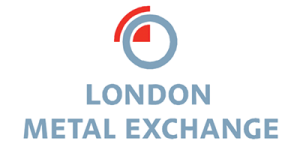 LME – London Metal Exchange
LME – London Metal Exchange
The London Metal Exchange (LME) is the futures exchange with the world’s largest market in options and futures contracts on base and other metals. As the LME offers contracts with daily expiry dates of up to three months from trade date, weekly contracts to six months, and monthly contracts up to 123 months, it also allows for cash trading. It offers hedging, worldwide reference pricing, and the option of physical delivery to settle contracts. Since 2012 it has been owned by Hong Kong Exchanges and Clearing, after LME’s shareholders voted in July 2012 to approve the sale of the exchange for a price of £1.4 billion. The London Metal Market and Exchange Company was founded in 1877, but the market traces its origins back to 1571 and the opening of the Royal Exchange, London.
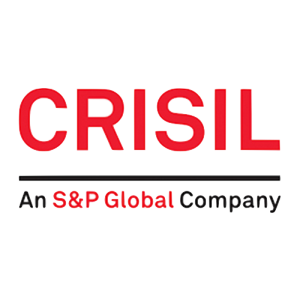 CRISIL – Credit Rating Information Services of India Limited
CRISIL – Credit Rating Information Services of India Limited
CRISIL (formerly Credit Rating Information Services of India Limited) is a global analytical company providing ratings, research, and risk and policy advisory services. CRISIL’s majority shareholder is Standard & Poor’s, a division of McGraw Hill Financial and provider of financial market intelligence. CRISIL’s clients range from micro, small and medium companies to large corporates, investors, to top global financial institutions. The Company work with commercial and investment banks, insurance companies, private equity players and asset management companies globally. By helping shape public policy on infrastructure in emerging markets, CRISIL helps catalyse economic growth and development in these geographies.
 BaFin
BaFin
The Federal Financial Supervisory Authority (German: Bundesanstalt für Finanzdienstleistungsaufsicht) better known by its abbreviation BaFin is the financial regulatory authority for Germany. It is an independent federal institution with headquarters in Bonn and Frankfurt and falls under the supervision of the Federal Ministry of Finance (Germany). BaFin supervises about 2,700 banks, 800 financial services institutions and over 700 insurance undertakings. BaFin was created as one integrated financial regulator that covers all financial markets. BaFin was created by the merger of the three supervisory agencies, the Federal Banking Supervisory Office (German: Bundesaufsichtsamt für das Kreditwesen (BAKred)), the Federal Supervisory Office for the Securities Trading (German: Bundesaufsichtsamt für den Wertpapierhandel (BAWe)), and the Federal Insurance Supervisory Office (German: Bundesaufsichtsamt für das Versicherungswesen (BAV)).

